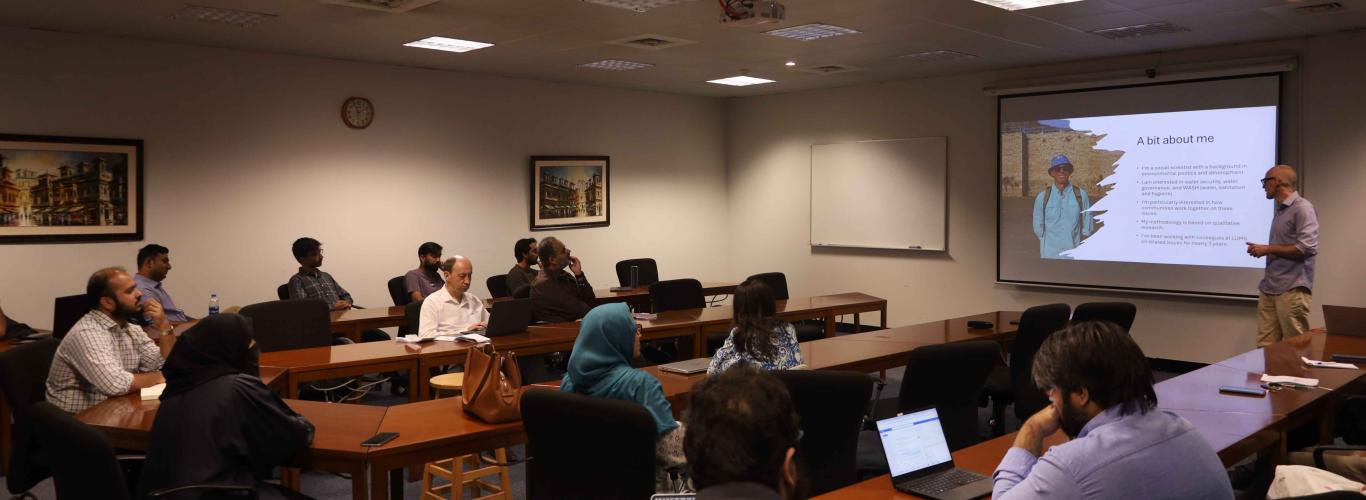Seminar on Field Methods for Environmental Research
On June 16, 2025, the Center for Water Informatics and Technology (WIT) hosted a special seminar titled Field Methods for Environmental Research, bringing together national and international scholars working in the domain of environmental science. The event focused on the importance of interdisciplinary approaches to addressing real-world environmental challenges.
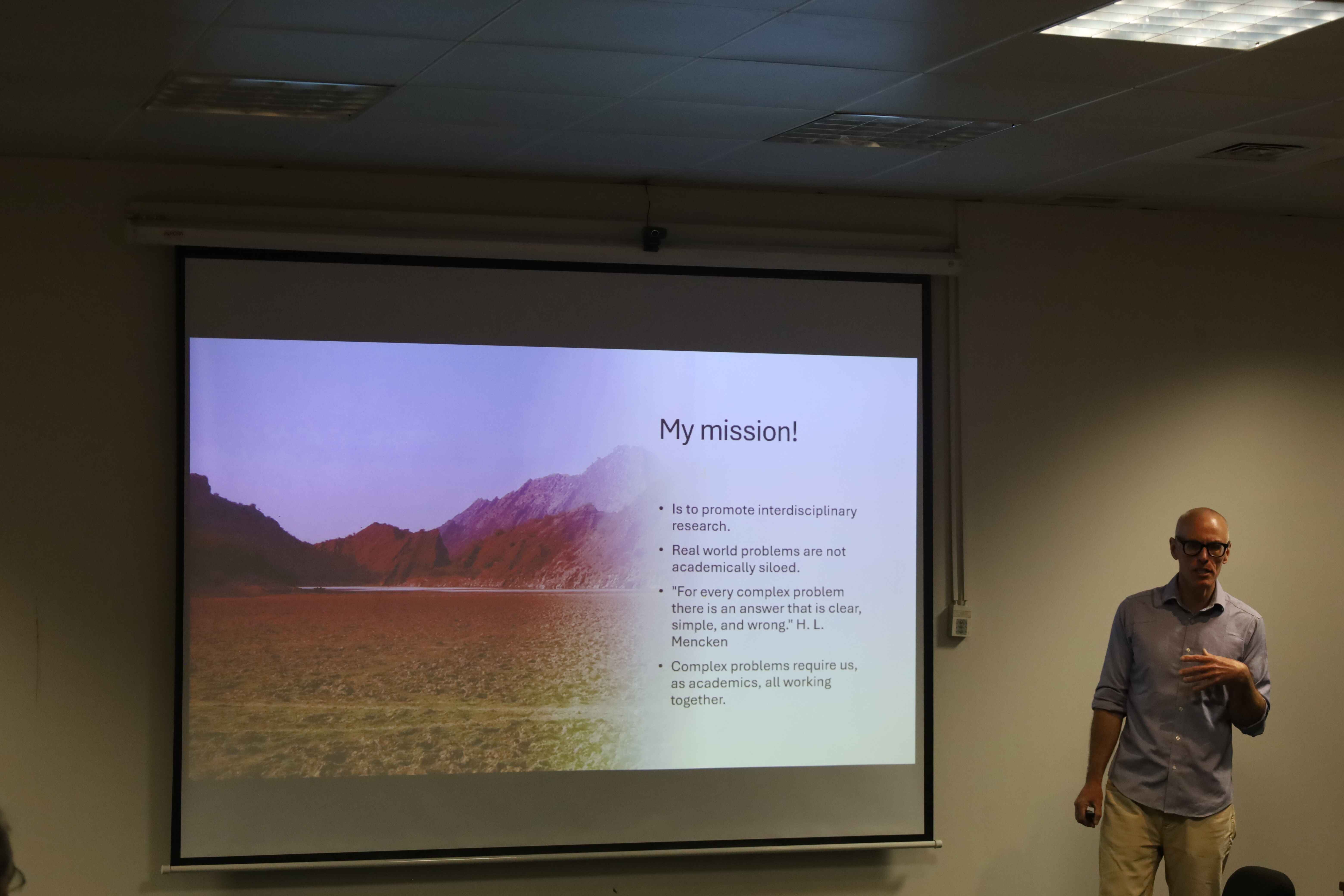
Dr. Adrian, Assistant Professor at the University of Bristol, opened the seminar with a thought-provoking presentation titled Why You Should Always Work with a Social Scientist – Academia, Research, and the ‘Real World’. His talk emphasized the indispensable role of social scientists in scientific research, particularly in climate-related fields. By highlighting examples from his work, Dr. Adrian underscored how collaboration across disciplines leads to more grounded and impactful research outcomes.
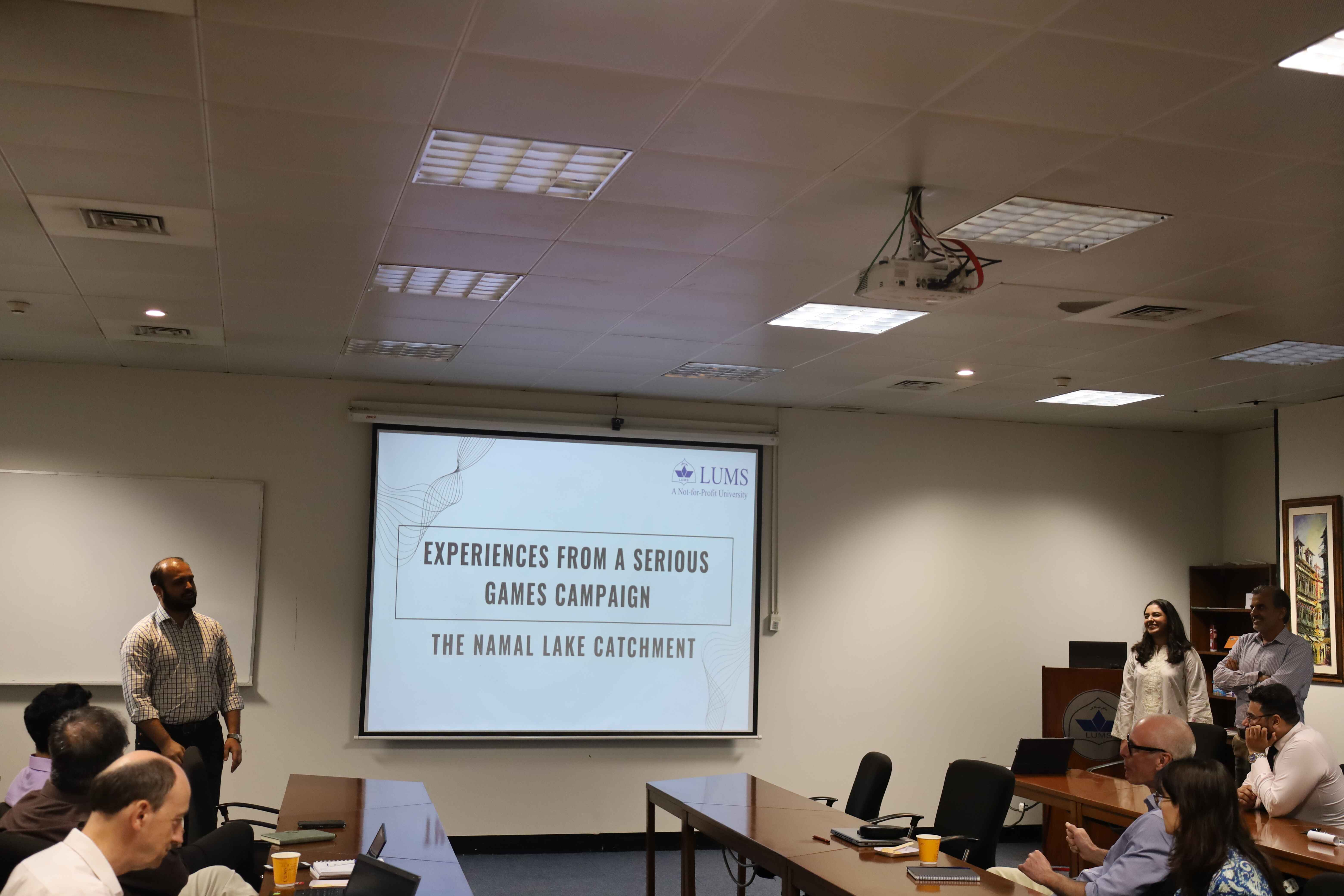
Following Dr. Adrian’s presentation, members of the WIT team — Ms. Seemal Nadeem, Dr. Talha Manzoor, and Dr. Malik Jahan — presented their research under the title Experiences from a Serious Games Campaign in the Namal Lake Catchment. Their work utilizes interactive gaming methods to simulate environmental dilemmas and understand human behavior. The project explores issues of water distribution and conflict between upstream and downstream communities, allowing participants to engage with the complexities of real-world water management through simulation.
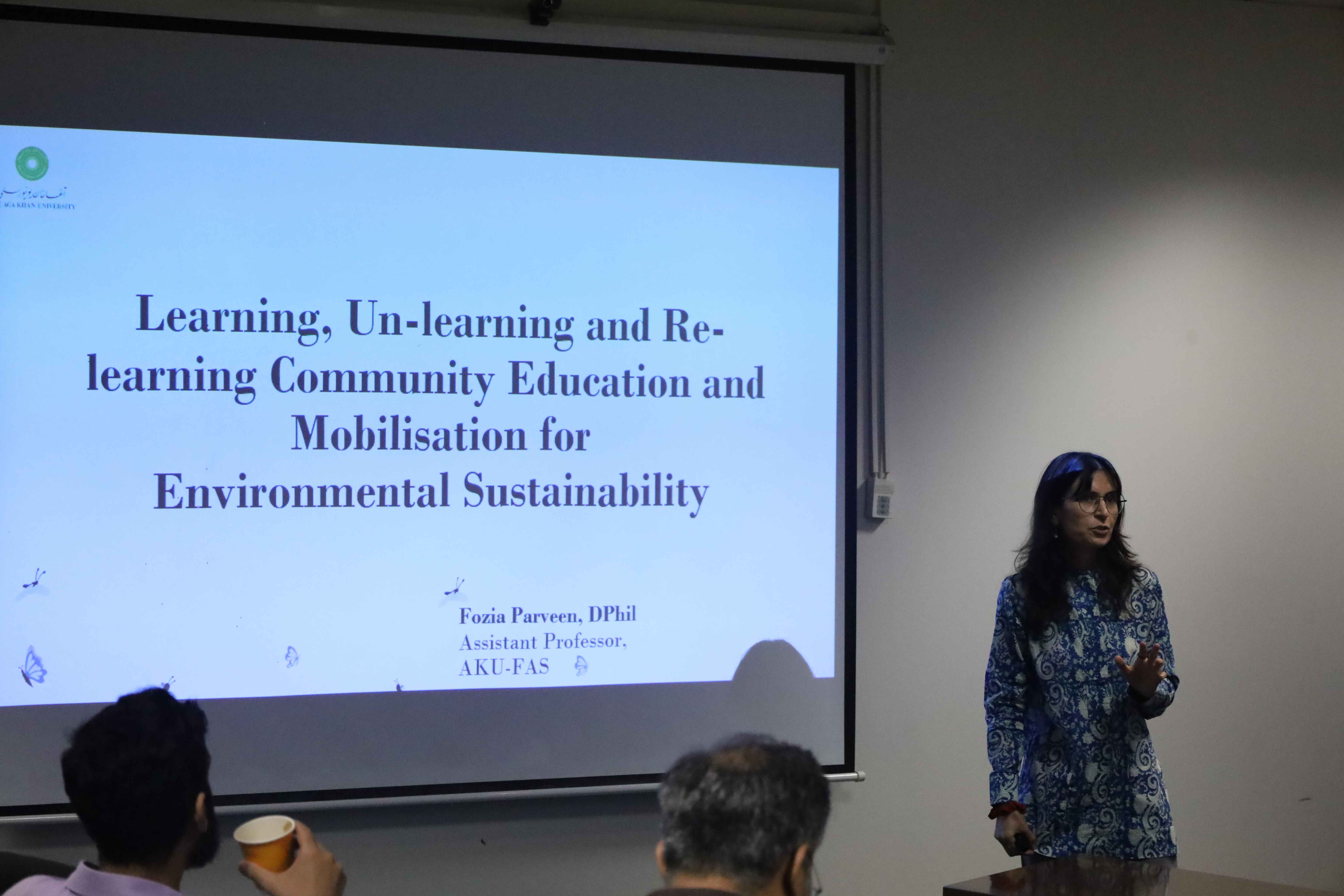
Another key theme of the seminar was climate education. Dr. Fozia Parveen, from the Faculty of Arts and Sciences at Aga Khan University, delivered a detailed presentation on the persistent knowledge gaps surrounding climate change in the education system. She shared the initiatives she has undertaken to address these gaps, including the development of an environmental dictionary, climate fellowship programs, the integration of environmental concepts into early childhood education, and the creation of innovative climate change pedagogies.
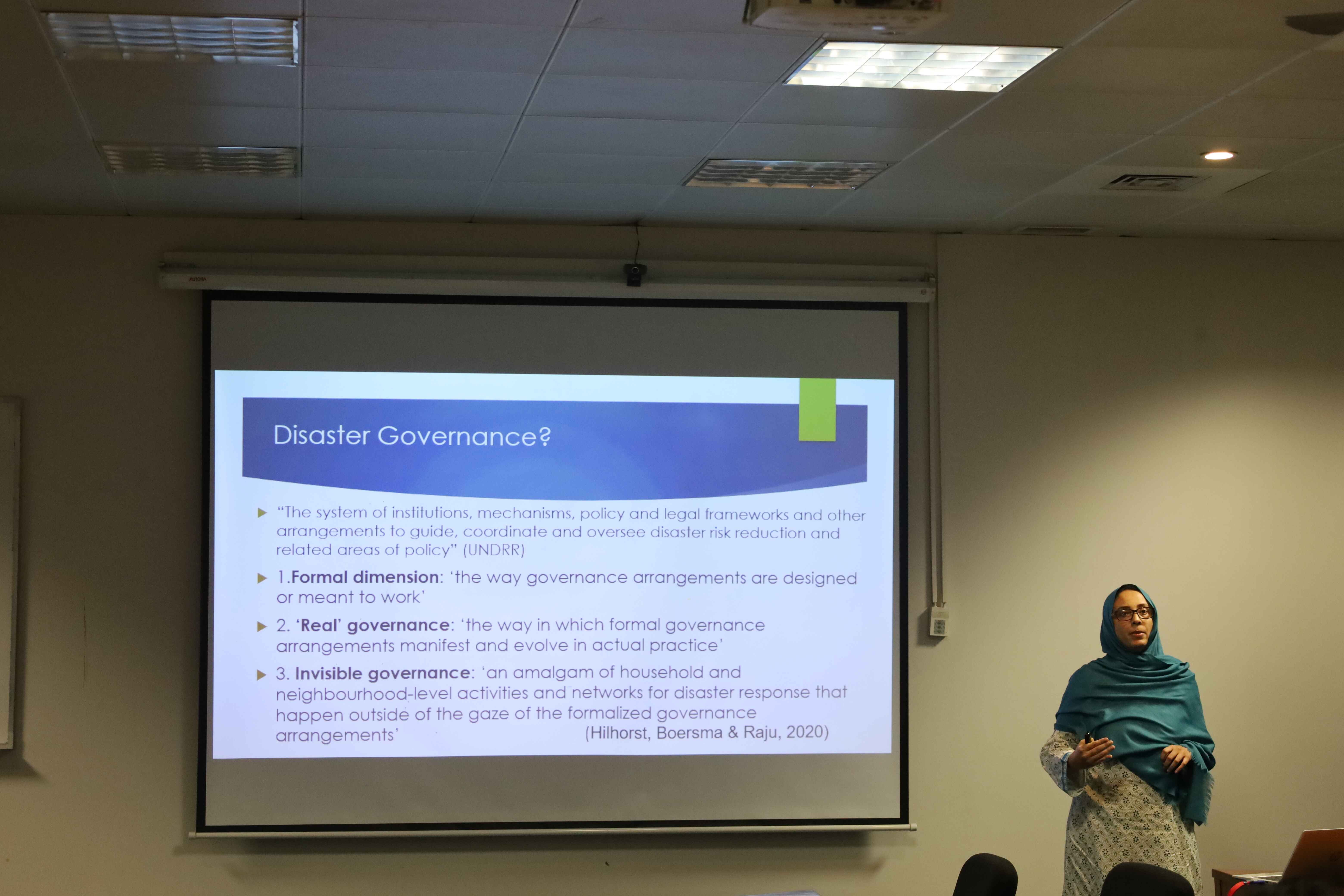
The seminar concluded with a compelling presentation by Dr. Sana Khosa on Disasters and Governance. Focusing on the catastrophic floods of 2010 and 2022 in Pakistan, Dr. Khosa used social network analysis to examine the gap between planned response networks and the emergent, on-the-ground responses that actually materialized during the crises. Her findings highlighted the need for more adaptive and responsive governance structures to better manage future disasters.
The seminar successfully highlighted the importance of interdisciplinary approaches in environmental research and policy-making. From integrating social sciences with natural sciences to employing experimental tools like serious games and rethinking climate education, the event provided a comprehensive look into innovative field methods for tackling today’s environmental challenges.

